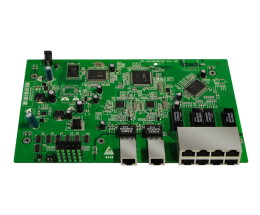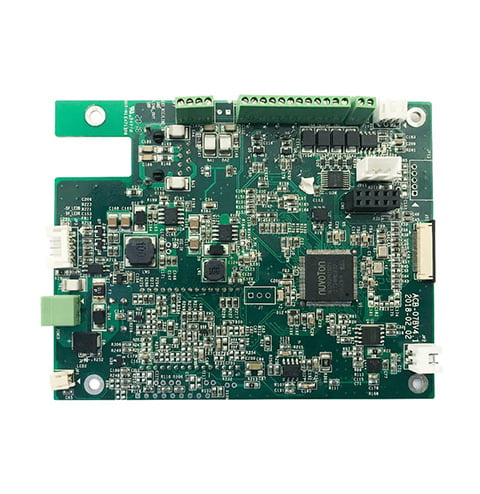PCB Assembly in India: A Comprehensive Guide to Choosing the Right Service Provider
If you’re looking for PCB assembly services in India, you’re in luck. India has become a hub for electronics manufacturing and PCB assembly services, with numerous companies offering a wide range of capabilities. From prototype development to mass production, you can find a PCB assembly company in India that can meet your specific needs.

One of the advantages of working with a PCB assembly company in India is the competitive pricing. Due to lower labor costs and a favorable exchange rate, you can often get high-quality PCB assembly services at a lower cost than in other countries. Additionally, many PCB assembly companies in India have invested in state-of-the-art equipment and technology, allowing them to offer fast turnaround times and high-quality products.
Whether you’re a startup or an established company, finding the right PCB assembly company in India can be a key factor in the success of your product. With a wide range of capabilities and competitive pricing, India has become a popular destination for electronics manufacturing and PCB assembly services.
Overview of PCB Assembly in India

If you’re looking for quality and affordable PCB assembly services, India is a great place to start. The Indian PCB assembly industry has been growing steadily in recent years, making it a major player in the global electronics industry.
One of the key advantages of the Indian PCB assembly industry is the availability of skilled labor. India has a large pool of skilled and semi-skilled workers, along with a strong engineering and technical education system, which has helped to develop a highly skilled workforce. This means that you can find highly skilled technicians to handle your PCB assembly needs at a lower cost than in many other countries.
Another advantage of the Indian PCB assembly industry is the low production costs. India has a lower cost of living than many other countries, which translates into lower production costs for businesses. This means that you can get high-quality PCB assembly services at a fraction of the cost of what you would pay in other countries.
Additionally, the Indian government has been supportive of the electronics industry, providing incentives and support for businesses to invest in the country. This has helped to create a favorable business environment for PCB assembly companies in India.
Overall, the Indian PCB assembly industry offers a combination of affordability, quality, and skilled labor, making it an attractive option for businesses looking for PCB assembly services.
Key Players in the Indian PCB Assembly Market

If you are looking for reliable PCB assembly services in India, it is important to know about the key players in the market. In this section, we will discuss the major domestic manufacturers and international collaborations that are contributing to the growth of the Indian PCB assembly market.
Domestic Manufacturers
There are several domestic manufacturers in India that are known for their quality PCB assembly services. Some of the notable players in this segment include:
- Micropack Limited: Micropack Limited is a leading PCB assembly service provider in India. Established in 1984, the company has over 35 years of experience in the industry. They offer a wide range of services including PCB design, manufacturing, assembly, and testing.
- Hitech Corporation: Hitech Corporation is another well-known PCB assembly service provider in India. The company was founded in 1987 and has since grown to become a major player in the industry. They offer a range of services including PCB assembly, testing, and repair.
- Vintech Electronic Systems: Vintech Electronic Systems is a Bangalore-based company that provides PCB assembly services to clients across India. They specialize in high-quality, low-volume PCB assembly, and have a reputation for delivering projects on time and within budget.
International Collaborations
Several international companies have collaborated with Indian manufacturers to provide high-quality PCB assembly services. Some of the major players in this segment include:
- Jabil Circuit: Jabil Circuit is a US-based company that has collaborated with several Indian manufacturers to provide PCB assembly services. They have a strong presence in India and offer a range of services including design, manufacturing, and testing.
- Flextronics: Flextronics is another major player in the Indian PCB assembly market. The company has collaborated with several Indian manufacturers to provide high-quality PCB assembly services. They have a strong presence in India and offer a range of services including design, manufacturing, and testing.
- Sanmina: Sanmina is a global electronics manufacturing services provider that has collaborated with several Indian manufacturers to provide PCB assembly services. They have a strong presence in India and offer a range of services including design, manufacturing, and testing.
Overall, the Indian PCB assembly market is home to several reliable and reputable manufacturers and collaborations. Whether you are looking for high-volume or low-volume PCB assembly services, you are sure to find a provider that meets your needs and budget.
Technological Advancements in PCB Assembly
PCB assembly has come a long way since its inception. With the advancement of technology, PCB assembly has become faster, more efficient, and more accurate. In this section, we will discuss two of the most significant technological advancements in PCB assembly in India: Automation and Robotics and Surface Mount Technology (SMT).
Automation and Robotics
Automation and robotics have revolutionized the PCB assembly process. Automated assembly lines can perform tasks with speed and precision that is impossible to achieve manually. Robotic arms can pick and place components on the PCB with high accuracy, and automated optical inspection systems can detect defects that are invisible to the human eye.
The use of automation and robotics has significantly reduced the time and cost of PCB assembly while improving the quality of the final product. With automation, PCB assembly companies can handle large volumes of orders with ease, and customers can receive their products faster and at a lower cost.
Surface Mount Technology (SMT)
Surface Mount Technology (SMT) is a significant advancement in PCB assembly. SMT components are smaller, lighter, and more reliable than through-hole components. SMT components are mounted directly onto the surface of the PCB, eliminating the need for drilling holes and inserting components.
SMT components are placed on the PCB using specialized machines that can handle large volumes of components with high accuracy. The use of SMT has significantly reduced the size of PCBs, making them more compact and lightweight. SMT has also made PCBs more reliable by eliminating the need for soldering wires and reducing the risk of mechanical failure.
Automation and robotics and surface mount technology are two significant technological advancements in PCB assembly in India. These advancements have made PCB assembly faster, more efficient, and more accurate, while reducing the time and cost of the process.
Challenges and Opportunities
If you are planning to engage in PCB assembly in India, you should be aware of the challenges and opportunities that come with it.
Supply Chain Issues
One of the main challenges you may face is supply chain issues. India still relies heavily on imports for electronic components, which can lead to delays and increased costs. However, the Indian government has been taking steps to address this issue by promoting local manufacturing and providing incentives for domestic production.
To overcome supply chain issues, you can consider partnering with local suppliers and manufacturers. This can help you reduce lead times and costs while also supporting the local economy. Additionally, you can explore alternative sourcing options such as using components from other countries or investing in local component manufacturing.
Government Policies and Incentives
Another challenge you may face is navigating the complex regulatory environment in India. However, the government has been implementing policies and incentives to encourage foreign investment and promote local manufacturing.
For example, the “Make in India” initiative launched in 2014 aims to make India a global manufacturing hub by promoting local manufacturing and attracting foreign investment. Additionally, the government has implemented various tax incentives and subsidies for electronics manufacturing companies.
To take advantage of these policies and incentives, you can work with a local partner who has experience navigating the regulatory environment in India. This can help you streamline the process and ensure compliance with local laws and regulations.
Overall, while there are challenges to PCB assembly in India, there are also many opportunities for growth and success. By partnering with local suppliers and manufacturers and taking advantage of government policies and incentives, you can overcome challenges and thrive in the Indian market.
Future of PCB Assembly in India
As India continues to focus on self-reliance and the development of its manufacturing sector, the future of PCB assembly in India looks bright. Here are some investment trends and potential growth sectors to watch out for.
Investment Trends
India is a growing hub for electronics manufacturing and is attracting significant investments from both domestic and foreign players. The Indian government’s “Make in India” initiative and other policies to promote local manufacturing have been successful in attracting investment in the electronics sector.
According to a report by IMARC Group, the Indian PCB market size is expected to reach US$ 21.3 Billion by 2032, exhibiting a growth rate (CAGR) of 16.4% during 2024-2032. This growth can be attributed to the increasing demand for smartphones, tablets, and other electronic devices, as well as the growth of the automotive and aerospace industries in India.
Potential Growth Sectors
The growth of the automotive and aerospace industries in India presents a significant opportunity for the PCB industry. With the increasing demand for electric vehicles and the development of autonomous driving technology, the demand for PCBs in the automotive sector is expected to grow significantly.
Similarly, the aerospace industry is also expected to drive the growth of the PCB industry in India. With the Indian government’s push to develop the aerospace industry, there is a growing demand for PCBs in the sector. The development of the space industry in India is also expected to drive the growth of the PCB industry.
Overall, the future of PCB assembly in India looks promising, with increasing investment and growth in the electronics, automotive, aerospace, and space sectors. As the Indian government continues to promote local manufacturing and self-reliance, the PCB industry is expected to grow significantly in the coming years.






